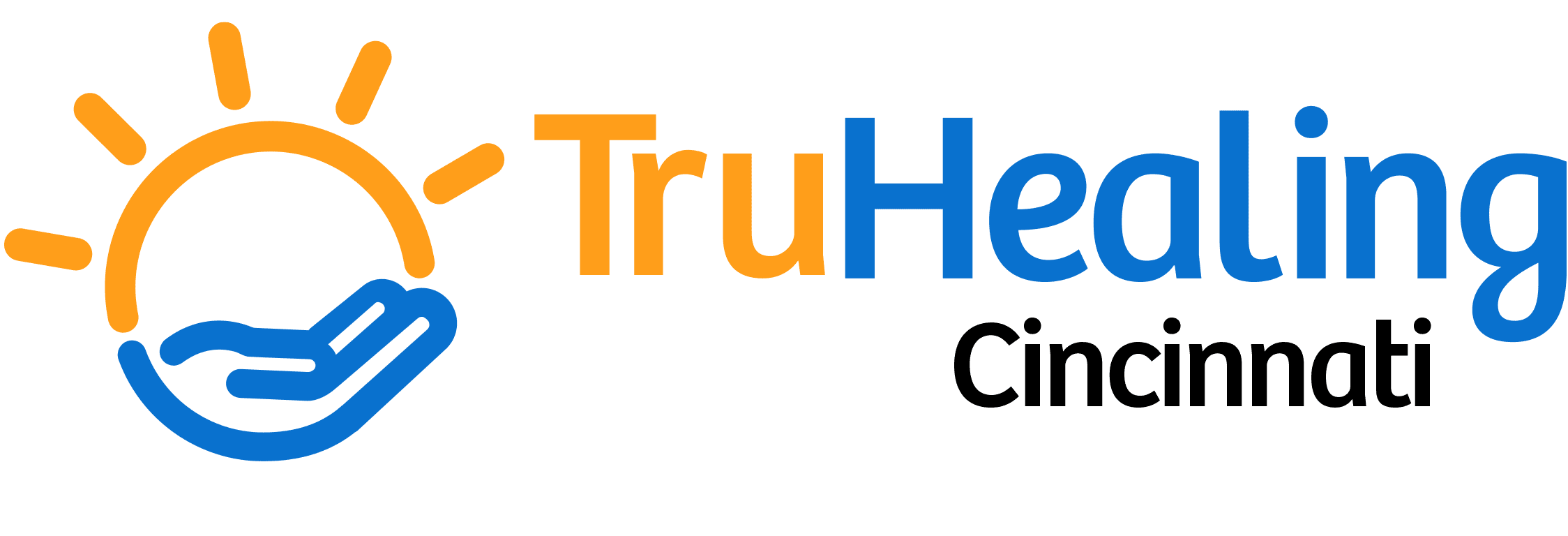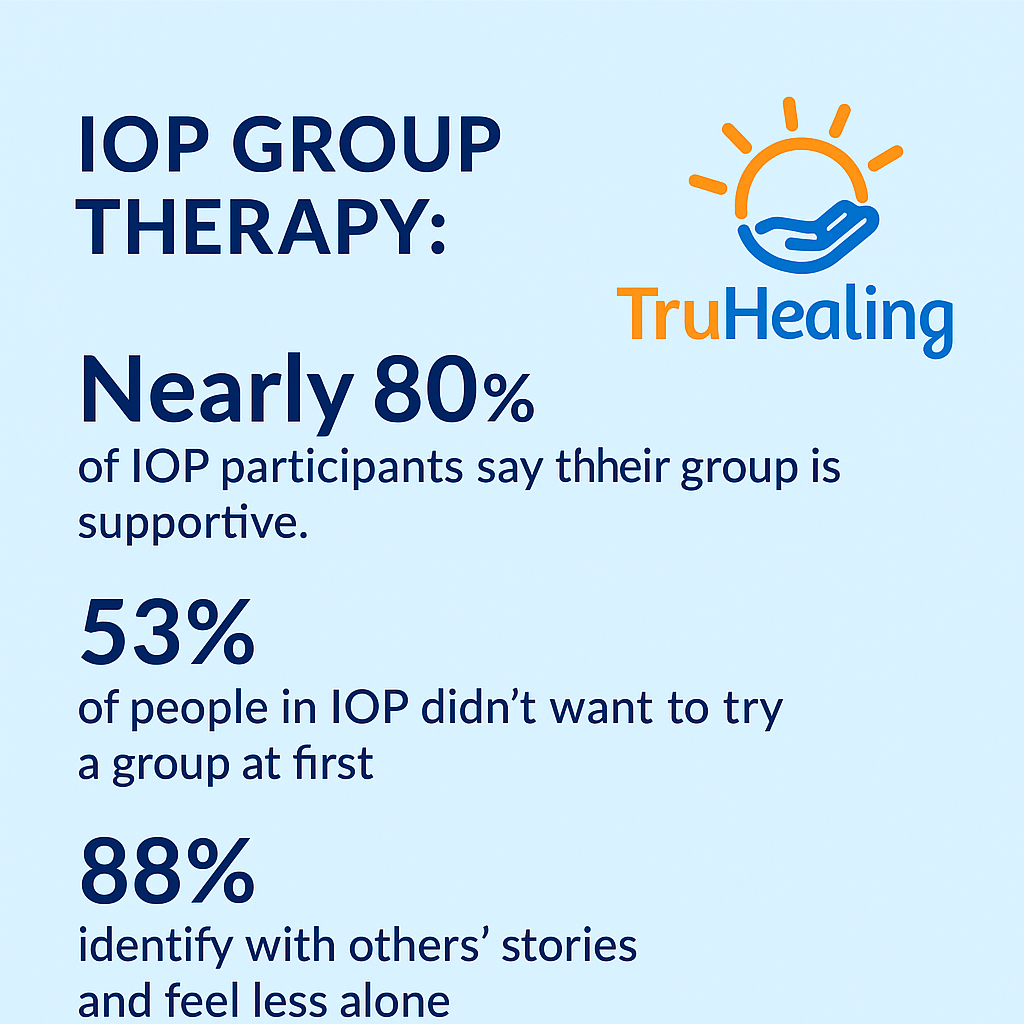You walk into group already doing the mental math. “How long do I have to stay?” “Do I need to share?” “What if someone I know sees me?”
You’re holding down a job. Maybe parenting. Maybe caregiving. You’re making the bills work, keeping your calendar full, smiling through 3pm meetings. On paper, you look fine. But something in you knows that’s no longer enough. You’re tired of waking up ashamed. Tired of managing a secret.
And here you are—in group therapy, wondering if any of this will actually matter.
You’re Not Broken. You’re Burned Out from Pretending.
High-functioning addiction doesn’t look like the stories most people tell. You haven’t crashed your car. You’re not out of work. You don’t smell like booze or vanish for days. But internally? You’re running on fumes.
That’s who shows up in IOP group therapy more often than you think: people like you. The lawyer who can’t stop drinking after court. The mom who hides wine in the laundry room. The guy who swore he’d only use on weekends—but it’s Tuesday. Again.
And for once, you don’t have to explain why you waited this long to ask for help. Everyone there already knows.
Group Isn’t About Oversharing—It’s About Stopping the Performance
There’s a misconception that group therapy means spilling your darkest secrets to a bunch of strangers. It doesn’t. In an intensive outpatient program, group is about breaking the cycle of isolation—at your own pace.
At first, you might not say much. Just listen. Watch. Maybe you’ll hear someone describe their nightly “just one drink” spiral. Or someone else admit they bought groceries three times this week and can’t remember any of it. And without warning, a part of you unclenches.
You weren’t imagining it. You’re not overreacting. It is exhausting to carry this alone.
What Actually Happens in Group?
The structure of group therapy in an intensive outpatient program depends on the facility, but it usually includes:
- Check-ins: Everyone shares how they’re doing—briefly, honestly, or just enough.
- Topic exploration: Led by a facilitator or therapist, themes like boundaries, triggers, relationships, shame, and relapse prevention get discussed.
- Skill-building: Cognitive and behavioral tools you can use immediately, like how to pause when you want to drink, or how to respond to guilt.
- Peer processing: The most impactful part—what other people share, and how you see yourself in it.
The group isn’t random. It’s curated. People are often at similar stages of recovery, even if their stories differ.
Yes, It’s Weird at First. That Doesn’t Mean It’s Wrong.
Group therapy has its awkward moments. Someone might talk too much. Someone might cry and you won’t know what to do. You might want to leave.
But discomfort isn’t failure. It’s friction from truth meeting resistance. And for people who’ve spent years functioning perfectly while falling apart inside, truth can feel abrasive.
Stay.
Not forever. Just through the discomfort. You might be surprised what happens next.
Connection Doesn’t Have to Be Profound to Be Powerful
You won’t bond with everyone in group. Some people will annoy you. Others might trigger your defenses. But somewhere in that room is a person who says something that lands—so hard and so clearly, you feel your guard lower.
Maybe it’s someone describing what it’s like to hold a crying baby while hungover. Or someone who talks about how lonely sobriety feels at first. Or someone who relapsed and didn’t spiral—just came back, honest and shaky, and was still welcome.
That’s what group offers. Not perfection. Not instant belonging. But proof that connection is possible—and recovery is real.
The Point Isn’t to Be Fixed. It’s to Be Seen and Supported.
You’ve probably spent years fixing things. Cleaning up messes. Keeping everything “fine.” Group therapy doesn’t require that of you.
What it offers instead is space—to be human, to be tired, to be unsure. It offers reflection without judgment. It offers people who ask “how are you?” and actually wait for the answer.
In IOP, you still go to work. You still sleep in your own bed. But for a few hours a week, you don’t have to pretend.
Is It Worth It?
That’s the real question, right? You’re giving up time, privacy, maybe pride. You want it to mean something.
Here’s what people who stick with IOP group therapy often say:
- “I didn’t realize how lonely I was until I wasn’t.”
- “I stopped thinking I had to do this perfectly.”
- “Someone in my group said exactly what I couldn’t put into words.”
And that’s why it works. Because healing doesn’t happen in isolation. And sometimes, it starts with hearing someone else say, “Me too.”
Real Change Happens in Community
Group therapy in an intensive outpatient program isn’t hype—it’s hard. It’s vulnerable. But for high-functioning people who’ve been managing the unmanageable behind the scenes, it can be the first real break from the performance. If you’re local to Lexington, Kentucky or Springfield, Ohio, TruHealing offers help that meets you exactly where you are.
It’s not magic. It’s not instant. But it is real. And for many of us, that’s the difference between surviving and starting to live again.
FAQ: Group Therapy in an Intensive Outpatient Program
What if I don’t want to share in group?
That’s completely okay. Many people spend their first sessions just listening. Sharing happens at your own pace—and you’ll never be forced.
Will people in the group be very different from me?
Possibly—but you may be surprised by how much you have in common. IOP groups often include professionals, parents, students, and retirees. Addiction doesn’t care what your life looks like on paper.
Is group therapy confidential?
Yes. Confidentiality is a key part of the group agreement. What’s shared in group stays in group, and everyone commits to protecting that space.
How often are group sessions held in IOP?
Most intensive outpatient programs run group therapy sessions 3–5 times a week, usually for 2–3 hours per session. Schedules are designed to accommodate work and family life.
What if I already tried group therapy and didn’t like it?
That’s valid. Every group is different. What didn’t work before might work now—with a different facilitator, focus, or timing in your life. It’s okay to try again.
📞 Ready to talk to people who actually get it?
Call (888) 643-9118 or visit TruHealing Cincinnati’s intensive outpatient program to learn more about our IOP services in Cincinnati, Ohio. You don’t have to fall apart to deserve help—and you don’t have to do this alone.


